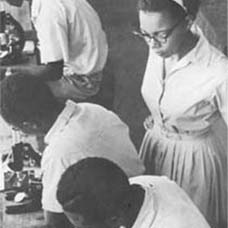
In 1994 the worst episode of genocide since the Holocaust of the Second World War ravaged the Central African country of Rwanda. Peace Corps Volunteer Derick Burleson lived there and taught at the National University during the two years leading up to the genocide. The poems in this collection explore the cataclysm in a variety of forms and voices through the culture, myths, and customs he absorbed during this time
Ejo
Poems, Rwanda, 1991–1994
Derick Burleson
Felix Pollak Prize in Poetry
Winner of the 2000 Felix Pollak Prize in Poetry, Selected by Alicia Ostriker
In 1994 the worst episode of genocide since the Holocaust of the Second World War ravaged the Central African country of Rwanda. Derick Burleson lived there and taught at the National University during the two years leading up to the genocide. The poems in this collection explore the cataclysm in a variety of forms and voices through the culture, myths, and customs he absorbed during this time. Ejo, meaning "yesterday and tomorrow" in Kinyarwandan, celebrates in language both lyrical and austere the lives of the friends Burleson made in Rwanda, those who survived to tell their own stories, and those whose voices were silenced.
"The place is Rwanda, the poet is a teacher of English from the American south, the poetry has the loveliness and wisdom of a casual, easy-breathing and humorous voice, able to encompass the clashes and the dovetailings of cultures. So you think at the start, and for a long while. The book then moves slowly from peace to the tides of civil war. Humane, frightening, horrifying, vivid, Burleson's Ejo does what Conrad said all writing should do: it makes you see."—Alicia Ostriker
"Derick Burleson's wonderfully daring and unified collection of poems about Rwanda is so empathic, so bracing and forthright, so richly humane—at times comical, at times heartbreaking—that we come away from its testament radically deepened, shaken, enlivened, and changed."—Edward Hirsch
"Burleson is the poet in Rwanda the way Vallejo was the poet in Paris and Neruda the poet in Malaysia: in the running, up the country, on the scene. The lines are scrupulous, the movement scriptural in its inclusive justice. This is a very old and honorable poetry, a poetry of news, outraged and doleful, longing for acquittal."—Richard Howard
"Ejo chronicles two years in Africa on the edge of utter meltdown, a Rwanda where Derick Burleson—an outsider, a teacher of English—found both joyful community and the signs of an approaching disaster of unthinkable proportions. Burleson understands that it is language that divides us, that constructs our difference; the paradox at the core of this heartfelt book is that this same language is the material of poetry. These are fascinating, formally alert, deeply engaged poems, full of heart, humanity, and an excoriating sorrow."—Mark Doty
"Poetry arrives always too late—too late for history, not for us, readers. From the ruins of Rwanda comes this outstanding book that saves as much as can be saved: humanity, humor, tenderness, poetry."— Adam Zagajewski
"Honest without ingenuousness, artful without artifice, Burleson's Ejo demonstrates the manifold repercussions of Rwanda's yesterday and tomorrow on a people learning "to breathe again, past dying.'"—Marilyn Nelson
Derick Burleson and his wife Anita Leverich lived in Rwanda from 1991 to 1993 where they taught English at the National University. A recipient of a 1999 National Endowment for the Arts Fellowship, Burleson is currently completing a Ph.D. in Creative Writing at the University of Houston.







